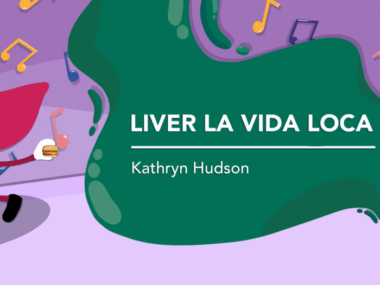Survodutide wins breakthrough therapy for fatty liver disease
Boehringer Ingelheim launches two Phase 3 trials to test safety, efficacy
Written by |

The U.S. Food and Drug Administration (FDA) has granted breakthrough therapy status to survodutide, an experimental injectable therapy by Boehringer Ingelheim for metabolic dysfunction-associated steatohepatitis (MASH), a severe form of fatty liver disease.
The designation, which is intended to accelerate a therapy’s clinical development and regulatory review, specifically covers treating MASH patients with moderate to advanced liver scarring (fibrosis) and no cirrhosis, or irreversible fibrosis. It was granted based on positive results from a Phase 2 clinical trial (NCT04771273) that showed that survodutide, given once weekly via an injection under the skin, significantly lessened MASH severity without fibrosis worsening in adult patients.
“The breakthrough therapy designation underscores that this potential best-in-class therapy has an opportunity to fundamentally change how MASH is treated,” Shashank Deshpande, head of human pharma at Boehringer, said in a company press release.
The company also announced the launch of two global Phase 3 trials to further assess survodutide’s safety and efficacy in MASH: LIVERAGE (NCT06632444) and LIVERAGE-Cirrhosis (NCT06632457).
LIVERAGE will test survodutide in up to 1,800 adult MASH patients with moderate to advanced liver fibrosis and LIVERAGE-Cirrhosis will test the treatment in up to 1,590 adult MASH patients with compensated cirrhosis, when the liver is still able to meet the body’s needs. Trial sites haven’t yet been disclosed.
“Our Phase [3] trial program with survodutide is one of the largest of its kind in terms of countries and sites involved,” Deshpande said. “Notably, the program’s innovative design, which specifically targets advanced fibrosis including patients living with cirrhosis due to MASH — the most in-need population, is set to redefine the treatment landscape.”
New approaches needed for MASH
MASH, formerly called nonalcoholic steatohepatitis, or NASH, is a serious form of metabolic dysfunction-associated steatotic liver disease (MASLD), which was previously known as nonalcoholic fatty liver disease.
MASLD is marked by fat building up in the liver and is associated with certain conditions like obesity and diabetes. Over time, it can cause liver inflammation and fibrosis, or MASH, that can progress to cirrhosis and, ultimately, liver failure.
“With the number of MASH patients expected to rise worldwide in the coming years, advancing our understanding of this condition is more crucial than ever,” Deshpande said.
In March, Rezdiffra (resmetirom), used in combination with diet and exercise, became the first and only approved therapy for adults with MASH in the U.S. It’s under review by regulators in the European Union (EU).
“Given the significant burden of MASH and the limited therapeutic options, novel approaches are urgently needed,” said Arun Sanyal, MD, professor of medicine at Virginia Commonwealth University (VCU) and the director of VCU’s Stravitz-Sanyal Institute for Liver Disease and Metabolic Health.
Survodutide works by simultaneously activating two receptor proteins — GLP-1 and glucagon receptors. Activating the GLP-1 receptors should increase feelings of fullness while reducing hunger in MASH patients. Activating the glucagon receptors should increase the amount of fat burned by the body and could directly influence liver health.
The therapy was originally developed by Zealand Pharma, which sold the development and commercialization rights to Boehringer.
Survodutide has also received the FDA’s fast track designation for non-cirrhotic MASH and moderate to advanced liver fibrosis, as well as Priority Medicines (PRIME) status in the EU and breakthrough therapy status in China for adults with MASH and fibrosis.
Studying survodutide
The placebo-controlled Phase 2 trial, which involved 295 adults with MASH and biopsy-proven liver fibrosis, showed that a significantly greater proportion of survodutide-treated patients saw a significant MASH reduction without fibrosis worsening relative to those on a placebo after a year (83% vs. 18.2%).
In addition to meeting the trial’s main goal, the therapy was also superior to the placebo on secondary goals, including a reduction in liver fat content and the extent of fibrosis, and was found to be generally safe.
In the new Phase 3 trials, participants will be randomly assigned to receive weekly injections of either survodutide or a placebo.
The first part of LIVERAGE will examine if a year of survodutide is superior to a placebo at resolving MASH without worsening fibrosis and at lessening fibrosis without MASH worsening in MASH patients with moderate to severe fibrosis. The second part will evaluate whether the therapy can reduce the risk of liver-related outcomes and death over about seven years.
LIVERAGE-Cirrhosis will examine if four and a half years of survodutide treatment reduces the time to the first occurrence of liver-related events or death in MASH patients with compensated cirrhosis.
“The Phase [3] LIVERAGE studies represent an exciting opportunity to investigate whether survodutide, with its dual glucagon and GLP-1 receptor agonist mechanism of action, can help address this significant medical need,” Sanyal said.
“Representing one of the most serious and fastest-growing obesity-related comorbidities with limited treatment options available today, we are both pleased and excited to see Boehringer Ingelheim advance survodutide into two Phase [3] trials in MASH in both [moderate to advanced fibrosis] as well as [cirrhosis patients],” David Kendall, MD, chief medical officer of Zealand Pharma, said in a separate press release.


